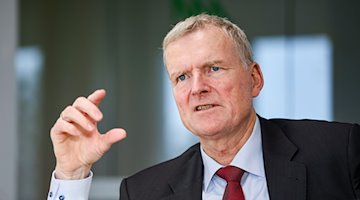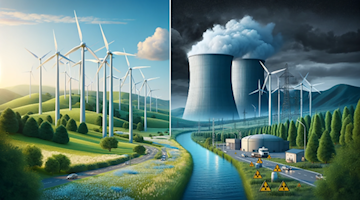On May 14, 2024, Germany wrote a remarkable chapter in the history of the energy transition. On an ordinary working day, without a public holiday or weekend, the country managed to cover almost all of its electricity consumption with renewable energy - at least for a few hours. This is not only a technical miracle, but also a highly symbolic event that sheds light on Germany's sustainable future and the global fight against climate change.
Significance of the event
This event is of great importance as it shows that a highly industrialized country like Germany is capable of meeting its energy needs almost entirely through renewable sources. It is proof that the years of investment in renewable energy and the transformation of the energy sector are bearing fruit.
The following table shows the detailed data of electricity generation and consumption on this historic day:
Source: https://www.agora-energiewende.de
Sources of renewable energy
Renewable energy sources that have contributed to this success include:
- Wind energy: Germany has a large number of onshore and offshore wind farms that supply a significant proportion of its electricity.
- Solar energy: Photovoltaic systems on rooftops and solar parks across the country have made a major contribution.
- Biomass: This source has provided not only electricity but also heat and plays an important role in the energy supply.
- Hydropower: Smaller hydropower plants supplement the generation from wind and solar.
- Geothermal energy: Although this source contributes less to the total energy, it shows the potential for future developments.
Effects on the environment and society
The almost complete coverage of electricity consumption by renewable energies has several positive effects:
- Reduction of CO2 emissions: The drastic reduction in fossil fuel use that day led to a significant reduction in CO2 emissions.
- Improving air quality: Less burning of coal and gas means cleaner air, which promotes public health.
- Promoting energy independence: By using domestic energy sources, Germany reduces its dependence on energy imports.
- Economic benefits: The renewable energy industry creates jobs and strengthens the local economy.
Future challenges and goals
Despite this success, there are still challenges that need to be overcome:
- Storage technologies: Advanced storage solutions are required to compensate for fluctuations in renewable energy generation.
- Grid infrastructure: The electricity grids must be further expanded and modernized in order to make the distribution of electricity from renewable sources efficient.
- Regulatory framework: Clear political framework conditions are still needed to promote the expansion of renewable energies.
- International cooperation: The energy transition is a global issue. Germany must continue to work with other countries to transform the global energy market.
Conclusion
May 14, 2024 marks a significant step in Germany's energy transition. It shows that it is possible to supply an industrially strong country almost entirely with renewable energy. This achievement is an inspiring example for other countries and an important step towards a sustainable and environmentally friendly future.










